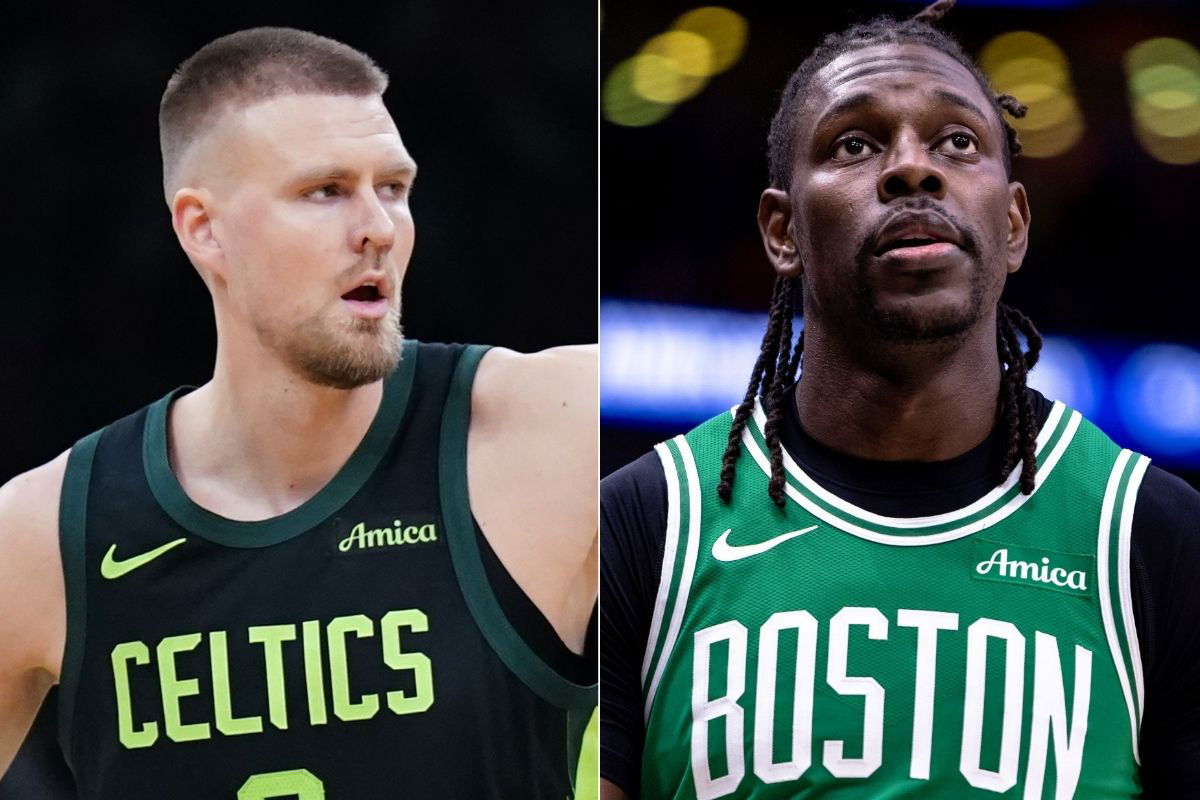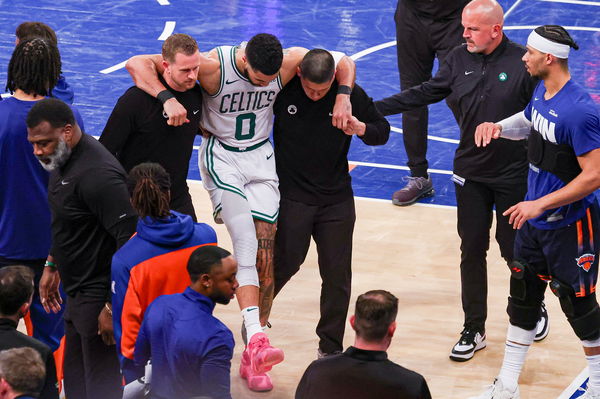
Imago
Image Credits: Imagn

Imago
Image Credits: Imagn

Imago
Image Credits: Imagn

Imago
Image Credits: Imagn
“The north star is to have a championship contender, right? So you have to do what’s best to give yourself the best opportunity to do that when you can do that.” That’s how Brad Stevens, the Celtics’ president of basketball operations, described his team-building mindset just weeks ago. This week, he showed exactly what that means. In the last 48 hours, the 2024 champion Boston Celtics blew up their own roster, trading away two key pieces of their championship-winning team in Kristaps Porziņģis and Jrue Holiday. On paper, it was a salary cap masterclass. Inside the locker room, though, it felt like something else entirely: the painful cost of chasing another banner.
Watch What’s Trending Now!
If you really think about it, the moves were a necessary evil. The Celtics, staring down a projected $500 million payroll and luxury tax bill under the league’s new, more punitive CBA, had to shed salary. As ESPN’s front-office insider Bobby Marks tweeted, “Trading Kristaps Porzingis now puts Boston under the second apron. The Porzingis and Jrue Holiday trades save Boston a projected $180M in tax penalties.” It’s a staggering number, the kind of financial relief that ownership simply couldn’t ignore.
The first domino to fall was Jrue Holiday, the defensive heart and soul of their championship team, who was shipped to the Portland Trail Blazers in a deal that brought young scoring guard Anfernee Simons to Boston. A day later, Porziņģis, the stretch-five unicorn whose arrival was seen as the final piece of the puzzle, was sent to the Atlanta Hawks in a three-team deal that netted the Celtics veteran forward Georges Niang. From a pure asset management perspective, the deals were a success. They got younger, they got cheaper, and they avoided the dreaded “second apron” of the luxury tax.
But basketball isn’t played on a spreadsheet. And according to Adam Himmelsbach, a Celtics reporter for the Boston Globe, the mood inside the Auerbach Center is far from celebratory. “Was told that the Celtics are pleased with their necessary deals this week,” he tweeted, “but that the general mood within the org is somber, because, basically, it sucks to trade two good players and people who helped you win a title.”
Was told that the Celtics are pleased with their necessary deals this week but that the general mood within the org is somber, because, basically, it sucks to trade two good players and people who helped you win a title.
— Adam Himmelsbach (@AdamHimmelsbach) June 25, 2025
The reason for this aggressive financial pivot, of course, is the devastating reality of Jayson Tatum’s Achilles injury. With their superstar expected to miss most, if not all, of next season, the team’s championship window has slammed shut for the time being. As veteran analyst Chris Mannix put it, “He’s done. I will be shocked if he came back next year… You cannot put in Jayson Tatum back into the middle of a playoff race coming off an Achilles injury.” So, it simply didn’t make sense to carry a massive payroll for a team that isn’t a true contender.

Imago
May 12, 2025; New York, New York, USA; Boston Celtics forward Jayson Tatum (0) is helped off the court by after an injury in the second half during game four of the second round for the 2025 NBA Playoffs against the New York Knicks at Madison Square Garden. Tatum would leave the game with an injury after this play. Mandatory Credit: Vincent Carchietta-Imagn Images
Even with a new owner, Bill Chisholm, who has said he wants to “raise banners now and in the future,” the reality of Tatum’s injury has clearly forced a change in strategy. And for a team that has now traded away two champions, the moves might not be over. As Kendrick Perkins noted, “I don’t think this is the end of it. I think he’s just getting started.”
The Boston Celtics’ next move? Inside the rumors linking them to lottery prospect Kasparas Jakucionis
While the primary goal of shedding salary has been accomplished, the Celtics roster now has some glaring holes and questionable fits. The frontcourt is particularly thin. With Al Horford and Luke Kornet both hitting free agency, Boston is left with just Xavier Tillman and Neemias Queta as true bigs. The guard rotation also feels a bit clunky. Anfernee Simons is a talented scorer, but he’s not a great defender, and pairing him with another smaller, offense-first guard in Payton Pritchard could create some defensive issues.
This new roster construction is what makes the latest rumor floating around so fascinating. According to a report from longtime NBA journalist Steve Bulpett, after all that work to cut costs, the Celtics are now trying to trade back up into the lottery of this week’s draft. The rumored target is Kasparas Jakucionis, a 6-foot-6 point guard from Illinois who is projected to be a lottery pick. He’s an intriguing prospect, a big floor general who could provide the size and playmaking the new-look backcourt is missing.
As Bulpett reported, the Celtics “are said to be trying to make a trade to move up in the draft, with particular interest in projected lottery pick Kasparas Jakucionis.” An unnamed front office source confirmed the possibility to Bulpett, noting, “There are definitely teams up high that are looking to trade back.” The logic makes perfect sense. With Holiday gone and Simons being more of a scoring guard, the Celtics lack a true, big playmaker. Jakucionis, with his size and court vision, would fill that role perfectly, giving them a high-upside prospect to develop alongside their core while Tatum recovers.
But a move like that would require assets—assets the Celtics just acquired. Would they really be willing to flip Anfernee Simons, a player they just traded for, to move up in the draft? Or would they package a valuable role player like Sam Hauser with their existing picks at No. 28 and No. 32? The fact that these conversations are even happening speaks to the cold, hard reality of the new NBA. Even for a defending champion, the roster churn is constant. And for a team in a forced “retooling” year, every option is on the table. With the draft just hours away, Brad Stevens’s somber but necessary offseason is far from over.

